Driverless Cars Report: Foundations of Information Systems, T1 2019
VerifiedAdded on 2023/04/04
|6
|340
|272
Report
AI Summary
This report examines the concept of driverless cars, delving into their technological underpinnings, advantages, and disadvantages. It highlights the role of sensors, hardware, and software in their operation, emphasizing their potential to reduce accidents and improve traffic flow. The report also addresses ethical considerations, such as data security, privacy concerns, and the potential impact on employment. It concludes with a recommendation for developers to prioritize data privacy and integrate advanced technologies. This report is based on research from recent (2015 onwards) journal articles and conference papers, providing a comprehensive overview of the subject matter as part of the ICT100 Foundations of Information Systems course.
1 out of 6

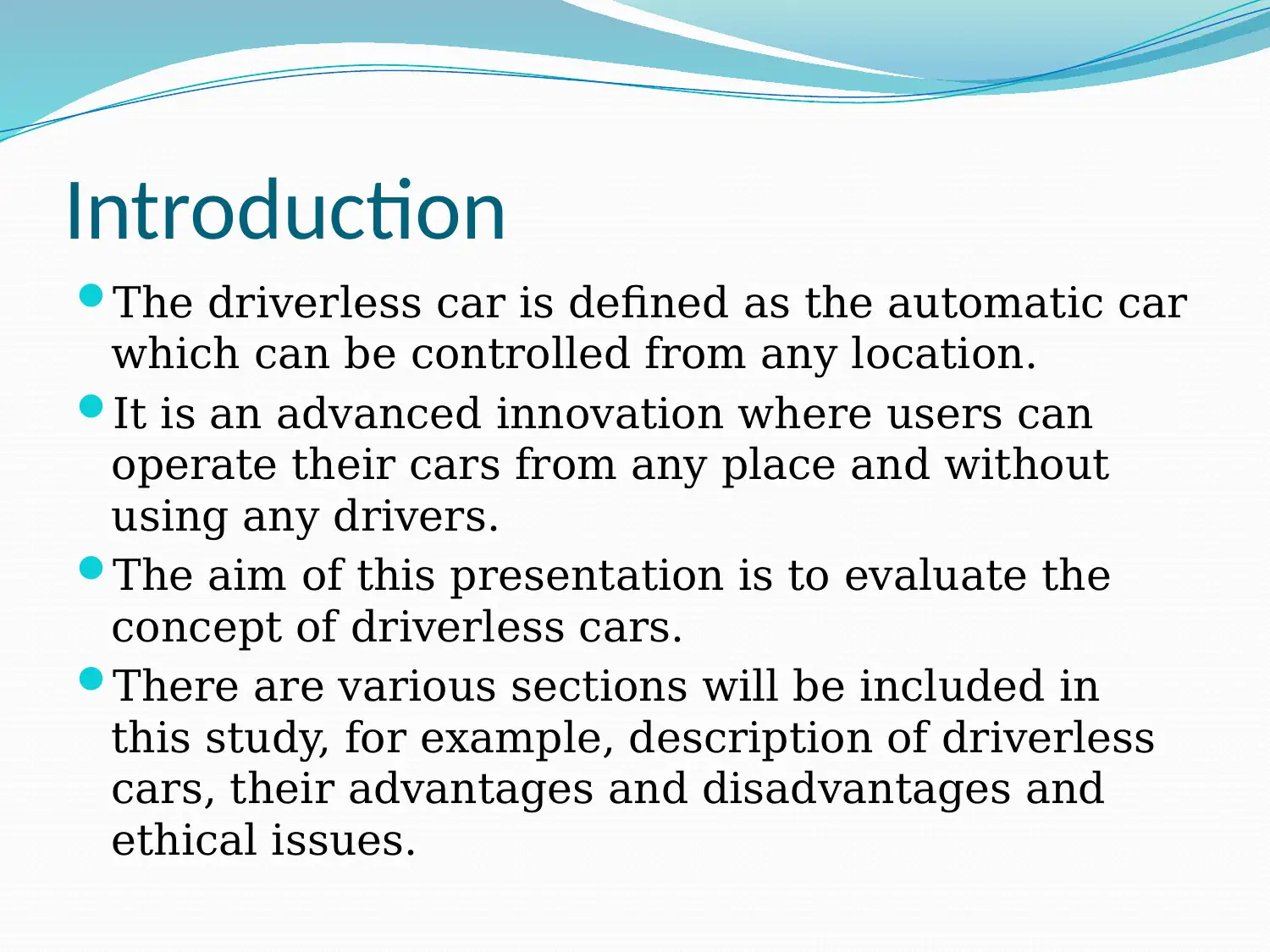
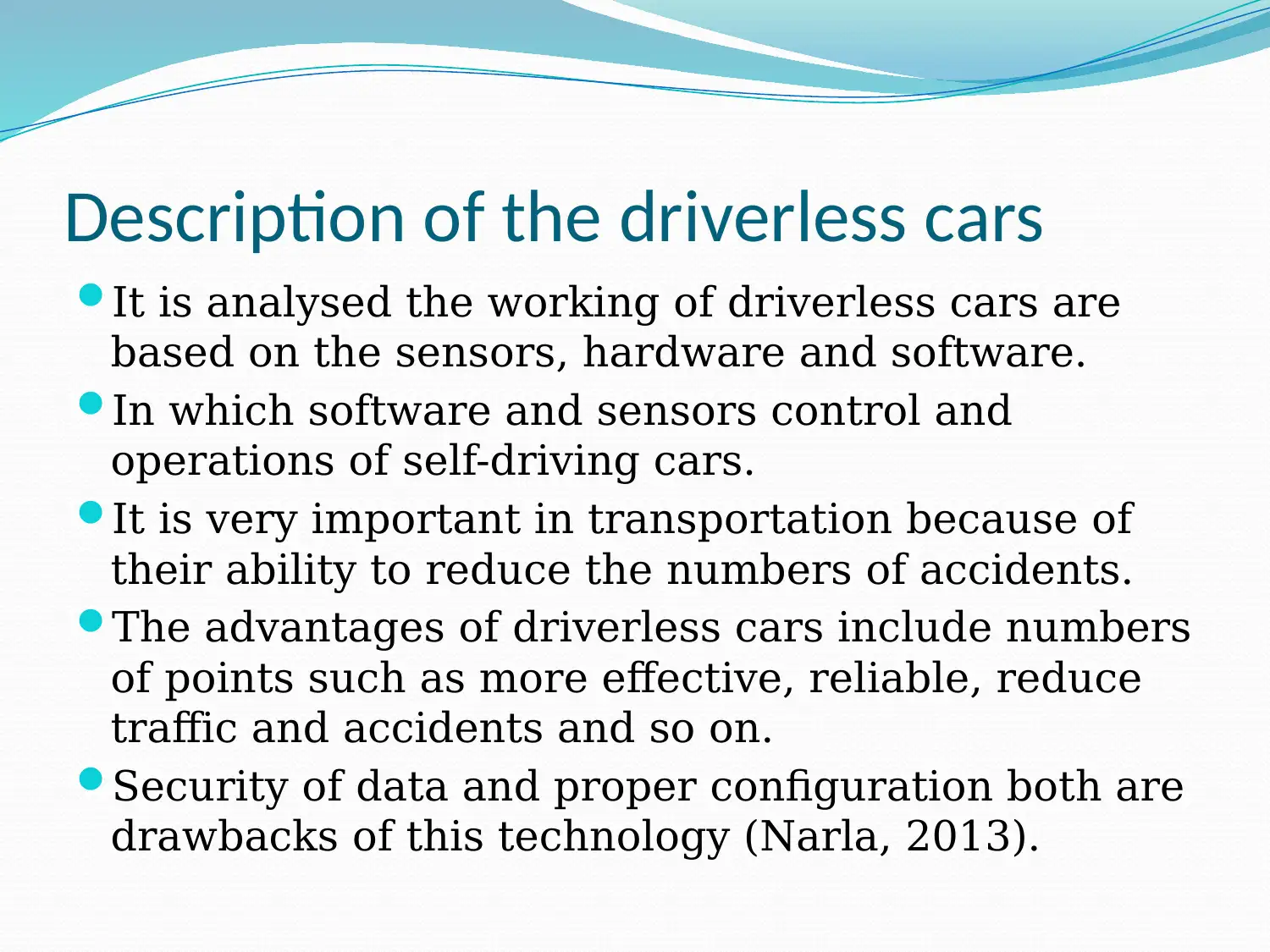

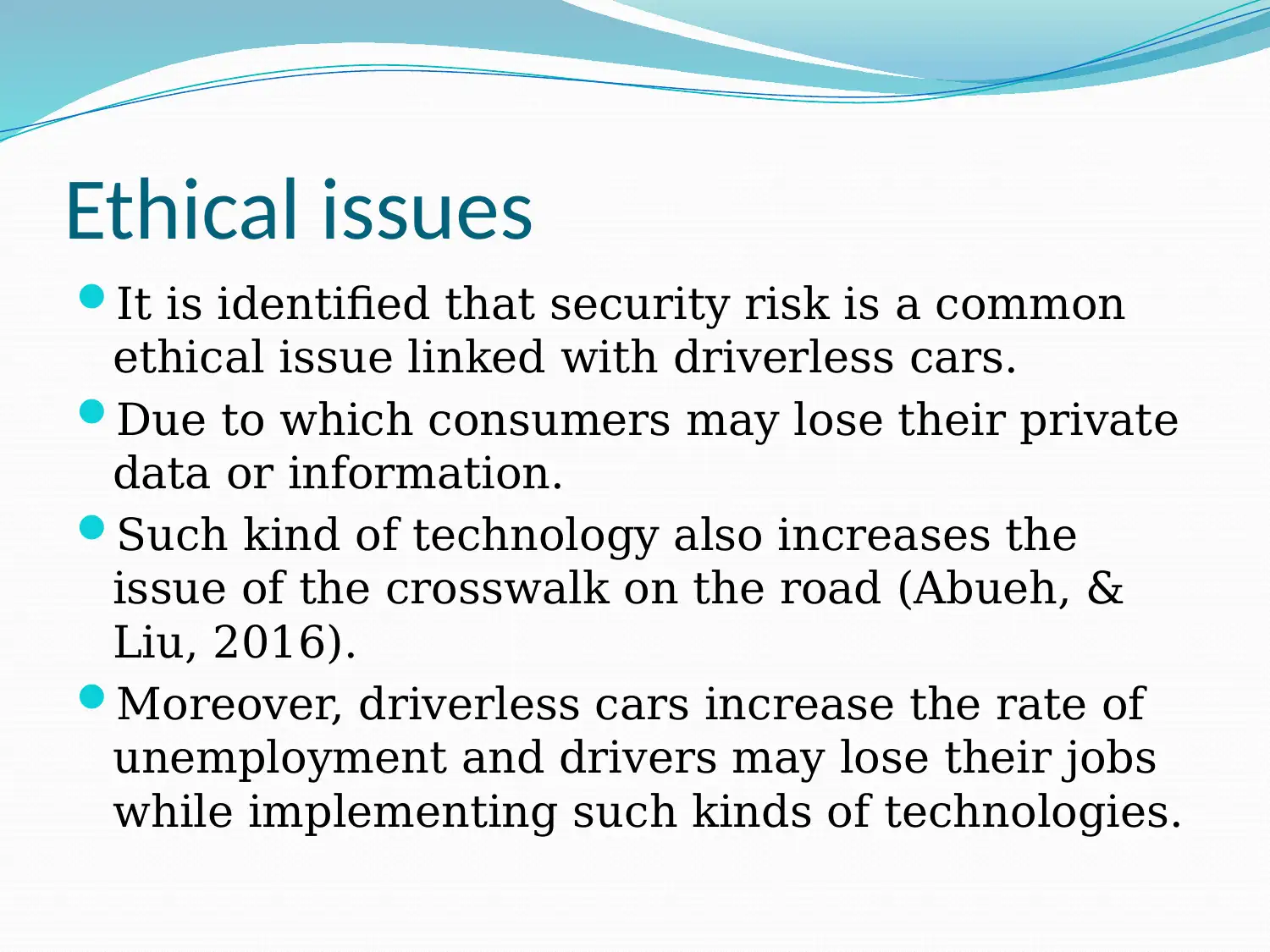
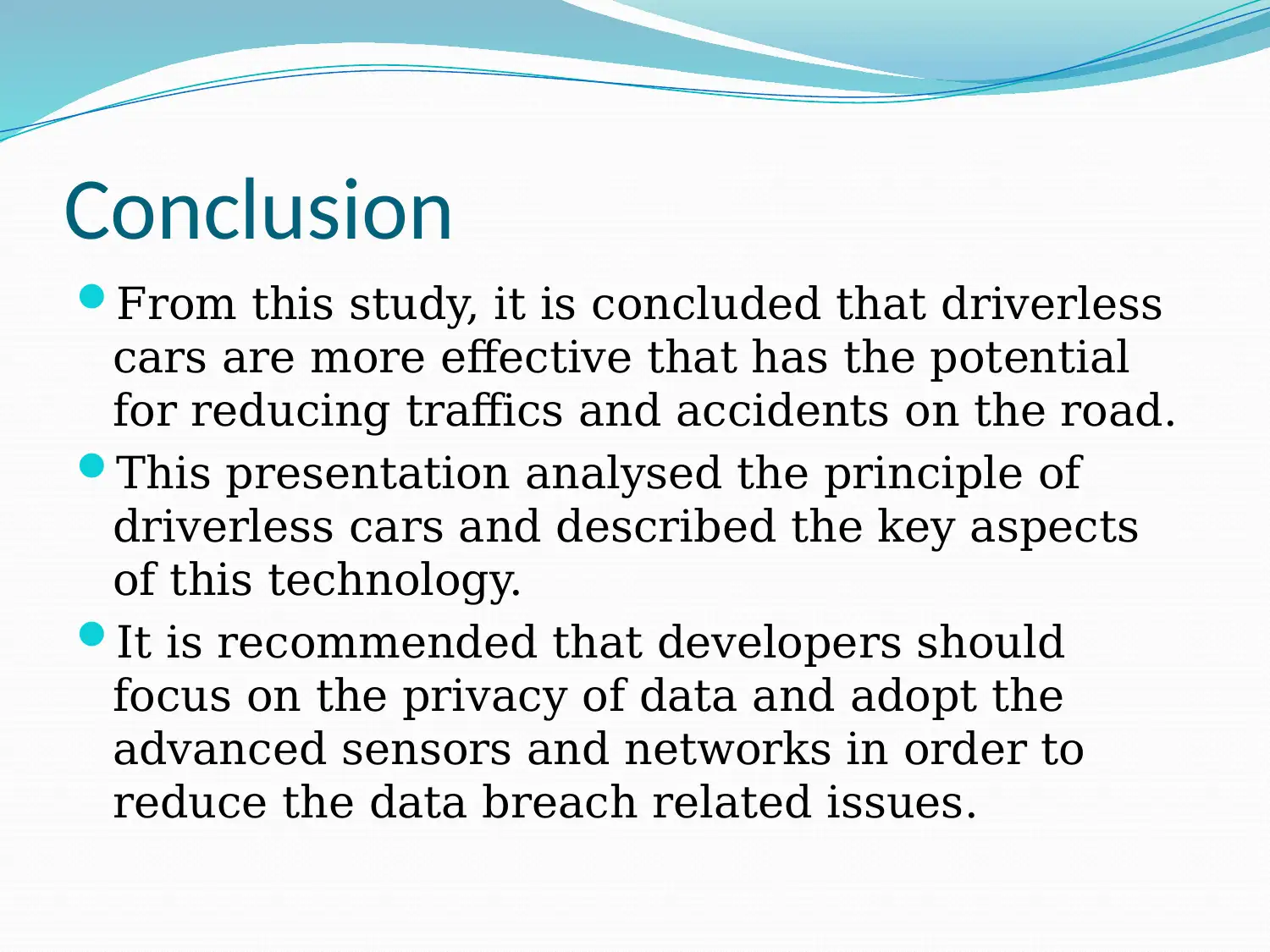
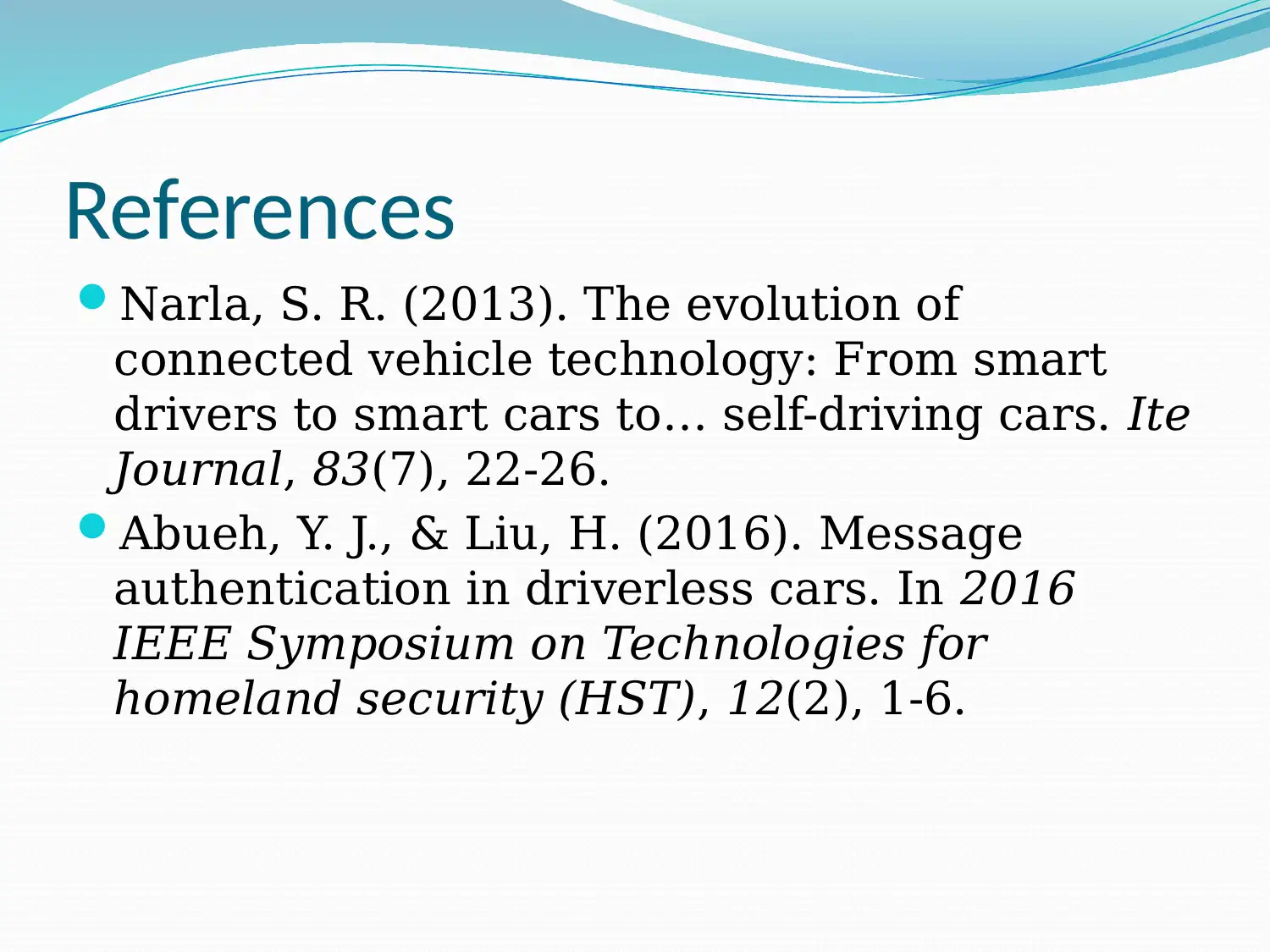






![[object Object]](/_next/static/media/star-bottom.7253800d.svg)